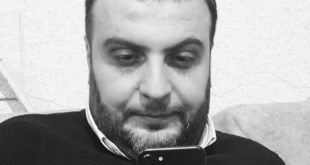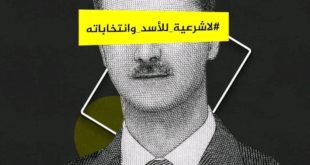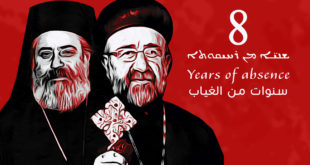The violence in Qameshli ended after Interior Minister Ali Haj Hammoud flew to the area to take control and the authorities threatened those responsible with the “severest punishments”.
Police officers and residents armed with licensed hunting rifles patrolled the streets of al-Hassaka, the administrative centre of the region, where public and private buildings had been attacked and damaged. They said their orders were not to use force unless “absolutely necessary”.
Parents were keeping children away from school.
In a joint statement Kurdish and human rights groups accused the Syrian state of “neglecting the rights of Kurdish citizens” and urged self-restraint.
The Assyrian Orthodox Church for the Euphrates held a meeting with Kurdish and other tribal leaders to seek an end to the violence and “emphasise the importance of national unity”.
It was not clear if the meeting, on Sunday evening, was held with the encouragement of the state officials who have been working to restore order in the city.
The newspaper al-Baath, organ of the ruling Arab Baath Socialist Party, said in an editorial on Sunday the unrest in the northeast was part of a plan “…to harm Syria and contribute to the sum of well-known pressures on Syria.”
The Bush administration has threatened to impose sanctions on Damascus to punish it for its foreign policies, including its refusal to close down Lebanese and Palestinian guerrilla groups which attack Israelis.
Sources close to government thinking said Kurdish politicians had tried to turn a soccer match riot into a political issue, a reference to the grievances of some 200,000 Kurds not recognised as citizens.
There are about two million Kurds in Syria’s 17 million population, but Syrian officials avoid reference to Kurds as a distinct minority and stress the importance of national unity. Kurds and other minorities have held senior government and army positions. According to a report published on Beth Suryoyo Assyrian Internet forum, two Assyrians were injured during the attacks in Qamishli by some of the separatist Kurds. The Kurdish attackers were stopped by armed Assyrian youth who were defending the Churches and other Assyrian buildings. Local leaders of the Assyrian Democratic Organization and the Assyrian churches have asked the Syrian government for more reinforcement to protect the unarmed citiziens. According to one such report, the Assyrian-owned public transporation company of Ezla Tours was the only company of its kind as target of Kurdish separatist attacks in Qamishly.

Residents inspect a grain silo which was burned down by Syrian Kurd rioters in Qamishli, an ethnically mixed town near the Turkish and Iraqi border, March 15, 2004. Sporadic gunfire echoed through the northeast Syrian town of Kemishli on Sunday, and the burning grain silo and damaged public buildings showed the severity of two days of Kurdish rioting that killed 14 people. Courtesy of Reuter’s Khaled al- Hariri
Two Syrian military policemen stand next to a civilian in al-Hassaka city some 800 km (497 miles) northwest of the capital of Damascus near the border with Iraq and Turkey March 15, 2004. The violence near the Turkish and Iraqi border, was triggered by a brawl and stampede at a soccer match in the ethnically mixed town of Qameshli and spread to several towns nearby. Courtesy of Reuter’s Khaled al- Hariri.

Basheer al-Saadi, head of the Assyrian Democratic Organisation told Reuters by telephone while touring several towns in the northeast that he saw no signs of renewed violence in the area.
“It seems that Kurdish parties now realise that things cannot continue this way because it is not in their interests or that of their people. We have been talking to them and trying to prevent further escalation,” Saadi said.
 Assyrian Democratic Organization ADO
Assyrian Democratic Organization ADO





